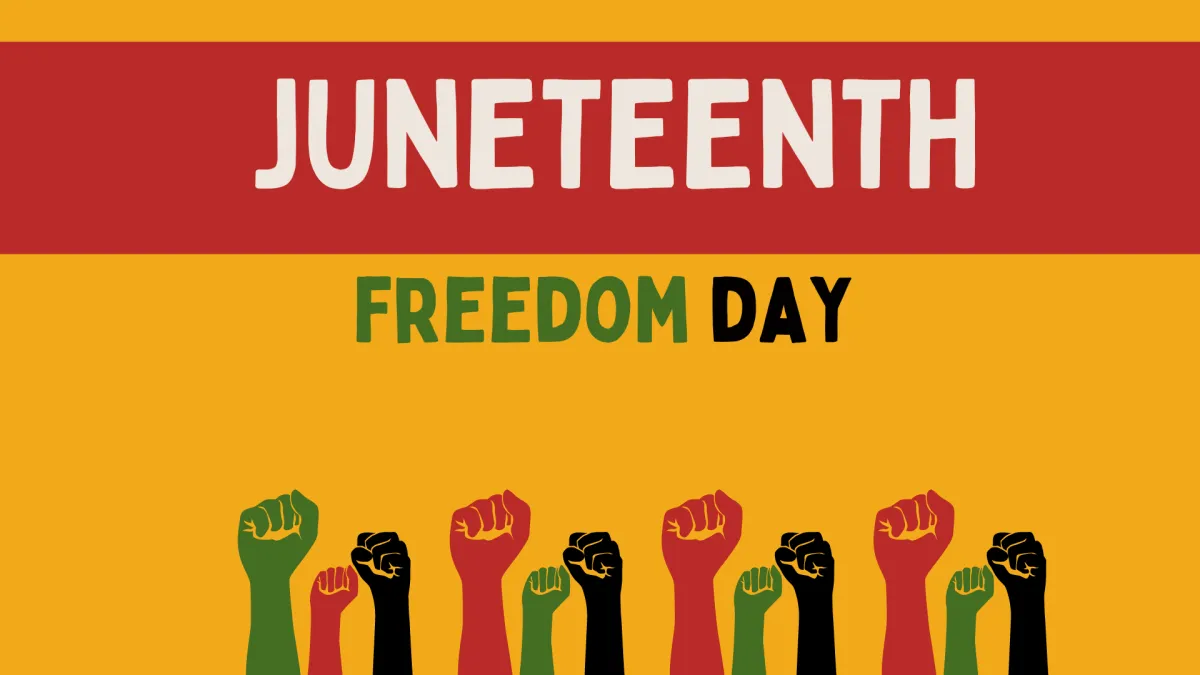
Juneteenth: Celebrating Freedom and Equality
The History of Juneteenth
Juneteenth, also known as Emancipation Day or Freedom Day, is a significant holiday commemorating the end of slavery in the United States. The name "Juneteenth" is a blend of "June" and "nineteenth," marking the date in 1865 when Union General Gordon Granger arrived in Galveston, Texas, to announce General Order No. 3, which declared the freedom of all enslaved people in Texas. This event occurred more than two years after President Abraham Lincoln issued the Emancipation Proclamation on January 1, 1863.
Key Historical Milestones:
Emancipation Proclamation (1863):
Issued by President Lincoln, this executive order declared the freedom of all enslaved people in Confederate-held territory. However, enforcement relied on Union military advances.
General Order No. 3 (1865):
Delivered by General Granger in Galveston, this order enforced the Emancipation Proclamation in Texas, the most remote of the slave states with minimal Union presence.
Ratification of the 13th Amendment (1865):
Officially abolished slavery throughout the United States, ensuring that emancipation was a nationwide mandate.
Significance of Juneteenth
Juneteenth holds profound significance as it symbolizes the end of slavery in America and represents a critical step towards equality and justice for African Americans. It is a day of reflection, celebration, and education about the history and ongoing struggles for civil rights.
Cultural and Social Impact:
Celebration of African American Culture: Juneteenth is marked by various cultural festivities, including parades, music, food, and storytelling, celebrating African American heritage and resilience.
Community and Family Gatherings:
It is a day for families and communities to come together to honor ancestors and educate younger generations about the history and importance of freedom.
Educational Events:
Schools, museums, and community centers often host events to educate people about the history of slavery, the Civil War, and the long fight for civil rights.
Legal Milestones in Civil Rights
Juneteenth is not only a celebration of the past but also a reminder of the ongoing fight for equality. Several significant legal milestones have shaped the civil rights movement in the United States:
Key Legal Milestones:
- Civil Rights Act of 1866:
Granted citizenship and equal rights to all persons born in the United States, regardless of race.
- 14th Amendment (1868):
Guaranteed equal protection under the law and due process for all citizens.- 15th Amendment (1870):
Prohibited voting discrimination based on race, color, or previous condition of servitude.
- Civil Rights Act of 1964:
Prohibited discrimination based on race, color, religion, sex, or national origin and ended segregation in public places.
- Voting Rights Act of 1965:
Eliminated various barriers to voting for African Americans, significantly increasing voter registration in the South.
- Fair Housing Act of 1968:
Prohibited discrimination in the sale, rental, and financing of housing based on race, religion, national origin, or sex.
The Modern-Day Relevance of Juneteenth
Juneteenth continues to grow in prominence, with increasing recognition at local, state, and federal levels. In June 2021, President Joe Biden signed the Juneteenth National Independence Day Act into law, making Juneteenth a federal holiday. This recognition underscores the importance of acknowledging and learning from history to address ongoing racial inequalities.
Contemporary Significance:
Awareness and Education:
Juneteenth serves as a platform for raising awareness about the historical and contemporary struggles for racial equality and justice.
Policy and Reform:
The holiday inspires conversations and actions towards policy reforms aimed at addressing systemic racism and promoting equity.
Community Empowerment:
It strengthens community bonds and encourages collective efforts towards social justice and economic empowerment for African Americans.
Conclusion
Juneteenth is a powerful reminder of the journey towards freedom and equality. It is a day to honor the past, celebrate progress, and continue striving for a more just and inclusive society. As we commemorate Juneteenth, let us reflect on the significance of this historic event and renew our commitment to the ongoing fight for civil rights and equality for all.
Additional Resources and References
For further reading and to deepen your understanding of Juneteenth and its impact, consider exploring the following resources:
- National Museum of African American History & Culture
- Library of Congress Civil Rights History Project
- NAACP (National Association for the Advancement of Colored People)
By educating ourselves and others, we can ensure that the legacy of Juneteenth continues to inspire and drive meaningful change in our communities.

Ph: 860.461.7494
Fax: 860-461-7003
All information displayed on the The Christie Law Firm website is informational and shall not be deemed as legal advice.
If you’re currently dealing with an individual legal situation, you’re invited to contact us through email, phone, or form.
Until an attorney-client relationship has been established, we urge that you avoid sharing any confidential information.
© 2023 The Christie Law Firm, LLC All rights reserved
Family Focused & Child Centered™️
Illustrations by: Kuresse Bolds
Website Powered by Shaggy Digital


